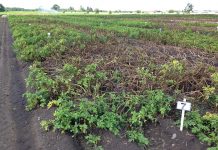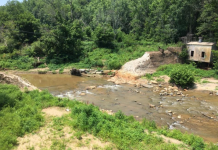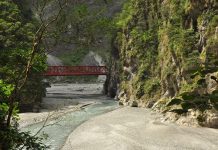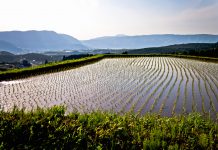Home 2023
Archives
Exploring hexacorallian models to aid corals affected by climate change
In this interview, Benyamin Rosental, PhD, from the Shraga Segal Department of Microbiology, Immunology, and Genetics, looks toward hexacorallian models to transplant stem cells to corals affected by global warming.
Biodiversity COP15 – A stepping stone towards effective access and benefit sharing
Here, Dominic Muyldermans and Markus Wyss explore the opportunities and challenges on the journey towards effective access and benefit sharing across the globe.
How do we envision the sustainable society we want to create?
Here, Professor Masahide Sakamoto uses Japanese pollution research as a case study for thinking about and understanding how to create a sustainable society.
Sustainable plant & crop production systems in Europe
Professor Laura Grenville-Briggs shares her stance on working together to counter the threat of oomycete diseases, focussing on trans-sectoral approaches to support sustainable plant...
An exploration of the Portuguese Council for Health and Environment
Here, Dr. Mónica Rodrigues explores the Portuguese Council for Health and Environment (CPSA) efforts to prevent climate change, promote sustainability, enact a Global Health System Strategy and so much more.
Legacy pollution and our struggle to control non-point source pollution
To tackle legacy pollution and non-point source pollution, we must identify the sources, sinks and hot spots – but is it already too late?
Microbial farming for habitat recovery in the Taiwanese mountains
Professor Tzen-Yuh Chiang’s team looks toward microbial farming in the mountains slopes of South Taiwan to aid habitat recovery, as low-land slopes have been affected by climate change.
Microbes on a chip: How microfluidics can help us better understand and engineer electroactive...
Electroactive microbes exchange electrons with their environment for survival.
After COP27: Whither climate leadership?
The twenty-seventh Conference of the Parties (COP27) – tasked, like every annual UNFCCC conference, to accelerate climate ambition and action – duly laboured under the current global crises. What and where next?
Modelling future climate impacts on human health: lessons from Portuguese metropolitan areas
Dr Mónica Rodrigues, from University of Coimbra (UC), explains that future climate impacts may have hazardous effects on the health and wellbeing of the Portuguese population.
Bamboo education: Learning the environmental benefits of bamboo
Professor Saijo Kiyoshi at Miyagi University of Education, examines bamboo education, discussing its useful advantages and how we need it to avert further environmental crises.
Too hot to handle: The human health consequences of extreme heat
Heui Hye Park, a PhD Graduate Student and Professor Pamela J. Lein, Ph.D of the University of California look at the burdens of extreme heat, and the health consequences which are to follow.
Climate services to support coastal municipalities in South Africa
GERICS supports the development and use of climate change information and climate services to support coastal municipalities in South Africa.
Financing the green transformation
The role of finance is key to an efficient green transformation, needing a large-scale reallocation of capital and labour, argues Christian Keuschnigg, Professor at the University of St. Gallen.
Approaching COP27: some questions for climate leadership
COP27 is an opportunity for climate leadership to begin the long-term transition to net-zero, but is this now possible? asks Richard Beardsworth, School of Politics and International Studies, University of Leeds
Can rice yield more with less water?
Examining global warming and rice yield productivity with Professor Dr Apichart Vanavichit, Director of the Rice Science Center.


















